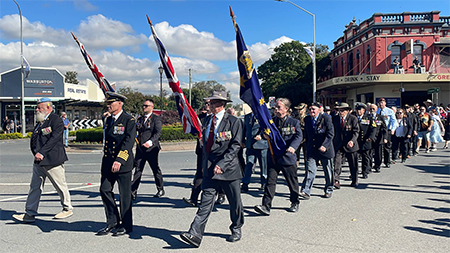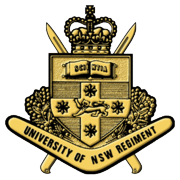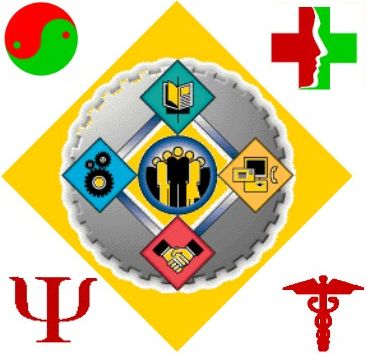
ADF Psychology was born out of a desire by the Principal (David G. Broadbent) to be more targeted in the provision of a range of psychology based interventions towards serving and retired members of the ADF community.
 One of David’s earliest memories is attending Anzac Day in Newcastle (NSW – Australia) before he even went to school. He still recalls, to this day, the legions of World War I veterans who were still marching in the mid 60’s. Not to mention the many more WWII veterans – who still had a spring in their step.
One of David’s earliest memories is attending Anzac Day in Newcastle (NSW – Australia) before he even went to school. He still recalls, to this day, the legions of World War I veterans who were still marching in the mid 60’s. Not to mention the many more WWII veterans – who still had a spring in their step.
The next memory was as a 5-6 year old watching the “Vietnam lottery” on the old B/W television. David’s uncles birthday came out – and his grandmother was more than a little distressed by the experience. Kerry Cattell (the uncle in question) went on to serve in Vietnam (as a “full track” with the AFV Detachment, 1st Division Intelligence Unit). Then there were the other uncles, on his fathers side of the family. Aub Broadbent (2/119 Australian Brigade Workshop), Allan Broadbent (P/O RAAF), Spencer Broadbent ( 4 Dock Operating Company), Norman Broadbent (Royal Australian Navy) and Douglas Broadbent (Chief Petty Office – Royal Australian Navy). A pretty diversified lot – Uncle Aub having served both in North Africa and later Kokoda.
David first “dressed” in the uniform of the Royal Australian Army at the age of nine (9). Kerry had returned from Vietnam and David climbed into the “kit bag” and looked a bit of a sorry site (that photo is long gone).
 The next time David donned an Army uniform was in 1979 after he enlisted in the Royal Australian Army Reserve (UN Co, UNSWR). He was still at school at the time and had a career goal of attending RMC Duntroon. David participated in all of the “hurdles” to be accepted and managed to jump the lot – except one (Mathematics). He clearly had spent too much time at the beach. David was later offered a position as OCS-Portsea, although by that time had accepted a traineeship as a Metallurgist with the BHP in Newcastle. Remember that uniform David had worn at age nine – it has belonged to Uncle Kerry (who happened to be a Metallurgist) – maybe that informed the career path somewhat?
The next time David donned an Army uniform was in 1979 after he enlisted in the Royal Australian Army Reserve (UN Co, UNSWR). He was still at school at the time and had a career goal of attending RMC Duntroon. David participated in all of the “hurdles” to be accepted and managed to jump the lot – except one (Mathematics). He clearly had spent too much time at the beach. David was later offered a position as OCS-Portsea, although by that time had accepted a traineeship as a Metallurgist with the BHP in Newcastle. Remember that uniform David had worn at age nine – it has belonged to Uncle Kerry (who happened to be a Metallurgist) – maybe that informed the career path somewhat?
David’s Reserve service lasted only a couple of years – the pressure of working/studying became a bridge too far. Did not help that he had a bit of a run-in with a Staff Sergeant – who loudly suggested that Reserve service should take precedence over everything else in life. Despite this exit from the Army Reserve being earlier than planned, David still credits those couple of years as being foundational to the many decades since. His respect for discipline, leadership, Kiwi Parade Gloss, Brasso, Fabulon and mateship have their beginnings at Bardia Barracks – thankyou WO2 Hedges.
David began studies in Applied Psychology in 1983 at the University of Newcastle. He graduated with an Honours degree in 1986 and commenced work with the Commonwealth Rehabilitation Service (CRS), where he remained for a decade. One of his first training courses was based at the Mount Wilga Rehabilitation Hospital. David appears destined to have multiple military exposures. In 1953, the Commonwealth Government transferred its rehabilitation services from Jervis Bay on the south coast of NSW to the Mt Wilga site. Why did they do that? To cater for the rehabilitation and residential needs of disabled servicemen.
David has remained committed to the psychological care and support of members of the Australian Defence Force for as long as he has been working.
 One of his first ever clients at the Commonwealth Rehabilitation Service in 1987 was a Vietnam veteran who had suffered a head injury and found it very difficult to sustain employment – despite his wanting too. Right up to today David continues to strive to provide best-in-class support and treatment to all who serve (and have served). David is frequently humbled by the stories that clients share in the consulting rooms. It is not impossible to say that, at times, the Kleenex are being passed across the room (socially distanced of course).
One of his first ever clients at the Commonwealth Rehabilitation Service in 1987 was a Vietnam veteran who had suffered a head injury and found it very difficult to sustain employment – despite his wanting too. Right up to today David continues to strive to provide best-in-class support and treatment to all who serve (and have served). David is frequently humbled by the stories that clients share in the consulting rooms. It is not impossible to say that, at times, the Kleenex are being passed across the room (socially distanced of course).
When a client says they have had their first good nights sleep in over a decade (now that was a story) David “tears up” on the inside.
That one “success” makes the previous thirty (30) years of clinical practice worth every moment.
